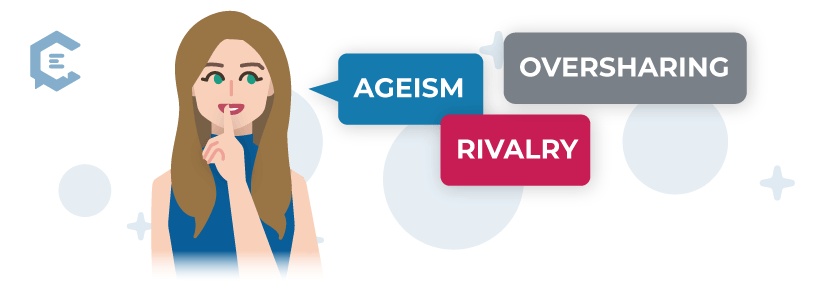Welcome to part six of an eight-part series on teamlancing in which I take you along with me on my journey from freelancer to semi-regular teamlancer. (You can read previous entries in the series if you need to catch up.)
For those still unfamiliar with the term, teamlancing — a portmanteau of team and freelance — is exactly what it sounds like, a group of freelancers working together as part of a team. What’s probably new here are the tools and methods of connectivity and sharing ideas, information, and updates. It’s also incredibly timely, since as more of us work from home, we’re increasingly collaborating on our work as well.
At the risk of repeating myself, I’ve been a prolific freelancer, contributor, columnist, and long-term contract player for years. The thing was that despite freelancing for teams and agencies, I’d never quite considered myself a teamlancer. Then I started a gig somewhat recently and realized that I was freelancing as part of a team, ergo I must be a teamlancer!
Who do you tell about your new teamlancing role?
With that realization came the understanding that there were new rules to be followed and team dynamics to respect. And that as much as I thought I understood the ins and outs of working with others, there was an entirely new level of nuance to navigate as a teamlancer. Which brings me to the crux of this article, when starting to teamlance, how much do you reveal to others, and how?
Will your current clients feel challenged if they learn that you’re now officially part of another team instead of simply continuing to freelance? And most importantly, how much should you be revealing anyway? Do you owe one client the knowledge that you’re working with another? And what are the potential benefits or pitfalls to sharing or keeping it to yourself?
It depends on who you ask
I took a few informal polls of friends and colleagues working in varied industries including public relations, journalism, content creation, academia, law, and even healthcare consulting. I was expecting to hear similar answers depending on the industry but that wasn’t the case at all.
People were either the type to share their work lives and information or the sorts who kept everything close to the vest. And for everyone I spoke to who believed that professional bounty begat professional bounty, there were horror stories about client poaching or people claiming referrals that never happened and trying to pretend they’d been recommended by a friend.
And so I began to give a deeper think to the way I’ve been mostly circumspect in sharing details about my own teamlancing gig (which is a little harder to do now that I’ve written an entire series about it!). Which made me give a deeper think to my own motivations.
Private vs. promotional: it isn’t always an easy decision
Despite sharing carefully chosen details about myself in my work and even in this series, I’m actually a very private person. In other words, I’m generally very calculated about what I reveal and for the most part, only reveal slivers of my personal life. Which leads me to a weird professional dichotomy; As a writer and the author of several award-winning nonfiction books, I’ve learned that complete privacy isn’t a luxury I can indulge in for several reasons.
Authors are expected to promote their work and interact with their fans (and critics, but that’s for an entirely different article). And we all know that in the pursuit of online traffic, more clicks are the most desirable outcome. And so, promoting my work puts me in front of potential readers and potential clients or partners or sponsors. It also reminds people that my work and words are relevant and that other people trust me enough to hire me time and time again. But there’s a potential double-edged-sword there as well.
If I seem to be overflowing with work, it’s possible that sometimes I look like I’m too busy to take on new clients, and that can get in the way of my bottom line. Another issue is that like many of us, I have a few simultaneous hustles including my work as a marketing and brand strategist and also a lecturer/speaker and beauty historian.
People are sometimes confused about what I actually do professionally (a lot!), and I worry that sharing too many details might confuse them further. Is she a freelancer or does she work for an agency? Is she a beauty expert or the person you call on for trend analysis? The answer is yes to all of those, which makes me realize that deciding to share details of your new teamlancing gig really depends on your desired outcome.
Things to think about before publicly sharing details of your teamlancing role
- How secure are you in your new position? If you’re still feeling your way, consider waiting before sharing.
- How much do your current clients know about your other roster? If you prefer to keep things very carefully separated, you might not want to make any kind of public announcement. The flip side is that you don’t want to seem like you’re hiding anything. But realize that sharing publicly means you can’t backtrack if someone comments or reacts in a way that you find worrisome.
- Is this a long-term position or a temporary thing? If you’re in a short-term position you can compromise by telling people after the fact. Something like ‘You’ll never guess what I was doing for the past 3 months,’ offers a tease but also explains why you may have seemed extra busy. In this way, you shared but didn’t risk your position or alienate existing clients or partners.
Another level of privacy vs. oversharing
All this talk of sharing information brings us into another conversation entirely. In the age of rampant identity theft, some people are extremely uneasy about sharing any personal information, and rightly so. By publicly sharing your resume on LinkedIn or your website, you’re not only sharing with potential employers but also with potential fraudsters. To help navigate this part of the sharing conundrum, I asked a personal security expert to weigh in.
Yvonne Coventry is the president and CEO of Starside Security & Investigation, Inc, one of the largest independently woman/minority-owned security, protection, and investigation firms in California. As a woman in a male-dominated industry, she was able to tap into some of the less expected insights into sharing your information publicly.
“The issue of privacy is one that we don’t take lightly,” Coventry said. “If a client is a celebrity and posts on social media where they are, that puts them and those protecting them at risk.”
And while most of us aren’t famous, we should probably be more careful about all those details we are sharing.
“We all want to share those great moments captured on social media but with that is information online about your whereabouts, assets, habits (that favorite restaurant you are likely to return to). Even where you live – the place you want to feel most safe,” Coventry said.
She also shared an incredibly sobering story. “Starside was recently contacted by a potential stalker looking for information on a celebrity. We contacted the proper authorities and parties concerned immediately.”
Even if you’re far from famous you should perhaps consider or reconsider how much you share about your new job or connections.
Privacy vs. professional promotion
- Are you sharing details of your new gig because it can genuinely help your career or just because you want to brag?
- If you share the news on LinkedIn, do you have to share more details on Twitter, Facebook and other social media streams?
- Can you wait until you’re back from your meeting to post to Instagram? Maybe waiting an hour before posting any news will also allow you a different type of perspective on how much to share.
How safe is it to share?
As mentioned above, sometimes the edit isn’t withholding information, but rather on deciding on the best possible time to share it.
“It isn’t a good idea to post real-time information,” Coventry cautioned. “During the pandemic, many of us have been at home. And at our earliest opportunity to leave we want to post on social media.” In your excitement to let everyone know about your big meeting, you might also be letting them know that your house is empty.
3 reasons you might not want to share your accomplishments publicly
- If you worry about ageism in the workplace, you might not want to publicly share the earlier accomplishments on your resume. It’s not that you’re not amazing, but you might just be a bit too amazing for the position offered. You can still brag but consider trimming your accomplishments or at the very least removing the years when it’s more than 20 years ago.
- If you’ve had a friendly or not so friendly rivalry going on with a colleague for some time, you might not want them to know about your new client or team. Someone who did not want to be identified in this article told me a horror story about having shared her new teamlancing gig on social media and then a few weeks later finding out that her greatest professional nemesis had joined the same team.
- If it’s early days, you might end up gushing too much. Things change. You can always share the information when you have a clearer idea of whether you love your new teamlancing life or if it’s just another assignment, albeit a longer-term one.
There are also certain details you should never share, even when promoting yourself or your work. “The more you share the more vulnerable you are,” Coventry said. “We all need to think twice before posting specific information as it relates to details.”
That might include specific places that you are going to be at, details about where you live, how many people live in your household, or the things others don’t really need to know about us.
“Privacy is a balancing act between privacy and security. The more you share the more vulnerable you are,” Coventry said before offering a final thought “before hitting the button to post online you should think about how much information you are sharing. Weigh the risk vs. reward.”






